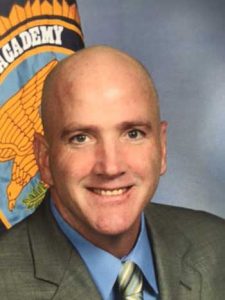RI police group concerned about mental health training
The Rhode Island Police Chiefs Association backed late-session legislation in June that attempted to overturn a 2016 law requiring mental health training for police officers.
Complying with the National Council of Behavioral Health’s flagship program, Mental Health First Aid USA, it teaches the skills to recognize mental illness, helps assess the risks, and connect individuals with the necessary care.
“Mental health training is targeted in how to respond and deescalate the situation,” said Beth Lamarre, executive director of the National Alliance on Mental Illness of Rhode Island.
With nearly two million mentally ill individuals booked into jails every year, the law was meant to decriminalize them. It is not meant to diagnose or treat the mental illness.
Several sources claimed that police departments balked at the individual cost of training for each officer—around $50 to $60. Some legislators criticized the departments for their failure to seek out alternative payment options in the form of grants, as many other states have done.
According to Jamestown Police Chief Ed Mello, who is also treasurer of the Police Chiefs Association, that is untrue.
“The issue is that two years ago, there was a legislative mandate that officers would have to be trained by a particular U.S. brand of mental health training,” he said. “There was no input from police officials about the curriculum nor was there any review of the curriculum by the police force.”
Mello estimated approximately 20 percent of the calls Jamestown receives involve mental health issues. Any time a call comes in for disorderly conduct, someone suspicious, or a domestic dispute, mental illness usually plays a factor.
But when it came to this particular program, it was a specific brand of training being required without the proper vetting, he believes. There was also no provision to follow if the curriculum should change in the future.
Those in the field of mental health training disagreed.
Joe Coffey, former chief of police in Warwick and president of BlueAid Consulting, Inc., a mental health training and advocacy group, said the Police Chiefs Association selected the Mental Health First Aid program and has been utilizing it since 2008. Rhode Island was one of the first states to implement it.
“It wasn’t until it was mandated [in 2016] that they suddenly wanted a choice,” he said. “The feedback on the program has been great for years.”
Charlie Feldman, the communications director of Oasis Wellness and Recovery Center and chairperson with the Mental Health Recovery Coalition of Rhode Island, thought the issue was more likely the cost plus the hours of training per officer.
“If they want more input,” he said, “we’d love to work with them if they’d like to work with us.”
Ruth Feder, executive director of the Mental Health Association of Rhode Island, said outside of cost, flexibility in the choice of curriculum was the problem. She said it was very important to have a standard that all departments follow.
“I understand wanting the flexibility,” she said, “but leaving it to individual municipalities to choose which model they want doesn’t make sense.”
Coffey agreed. Consistency in training is essential. Flexibility in course offerings allows departments to cut corners, which means something is missing in the education.
“It’s just like CPR,” he said. “You can’t do CPR 10 different ways and say, `let’s skip the choking part.’”
He said that the program only takes one day to complete and the International Police Chiefs Association fully endorses it.
“We deal with mental health issues every day,” said Coffey. “Every department should have mental health training—100 percent.”
Eileen Weber has been a freelance writer for several years with a master’s degree in journalism and a professional background in publishing. Based in Fairfield, CT, she has written numerous articles for magazines, newspapers, and web sites.

